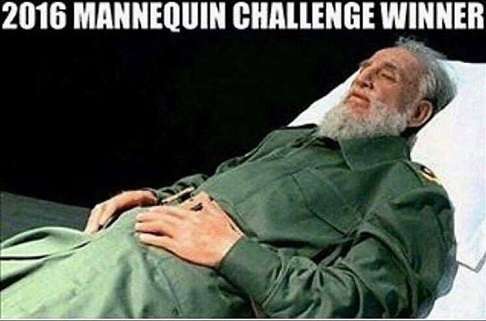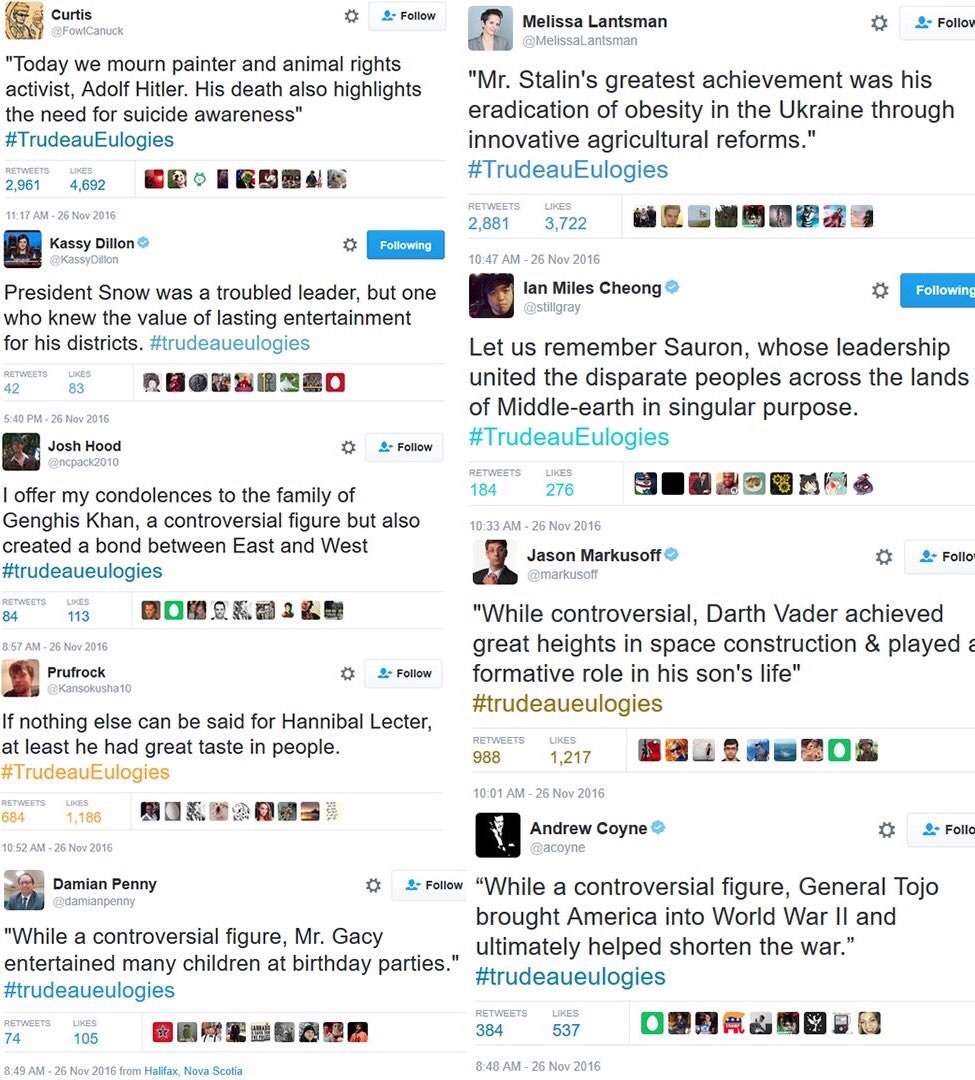Justin Trudeau, Castro's Death, and the Power of Twitter
Twitter users responded to the Canadian PM's idiotic paean to Castro early and often, showcasing free speech as one of its enemies died.

At the top of every list (including Reason's) of idiotic and ahistorical eulogies for Fidel Castro is Justin Trudeau's. The Canadian prime minister, himself the son of a former prime minister, filled his encomium with bland phrasing that tap-danced around tbe brutality and terror that characterized Castro's reign:
"Fidel Castro was a larger than life leader who served his people for almost half a century….
"While a controversial figure, both Mr. Castro's supporters and detractors recognized his tremendous dedication and love for the Cuban people who had a deep and lasting affection for "el Comandante".
"I know my father was very proud to call him a friend and I had the opportunity to meet Fidel when my father passed away. It was also a real honour to meet his three sons and his brother President Raúl Castro during my recent visit to Cuba."
For more awful official responses to Castro's death, as curated by Anthony Fisher, go here.
Of course, in an age of social media, Trudeau was mocked immediately and for hours, spawning two ironic hashtages, #trudeaueulogy and #trudeaueulogies, which pushed the Candadian's logic to absurdist degrees.
A sampling, compiled by Elias Toufexis:

We can make too much of the leveling power of a platform that allows the many to speak back to the mighty directly and publicly. Despite having been used in all sorts of incredible ways in tense political situations, Twitter and other forms of social media don't overturn existing power structures in any obvious, clear, and definitive ways. As with most forms of dissent—or, more accurately, most forms of free-er and more-open speech—new platforms create some space and then get appropriated or become domesticated as the existing power structure and its chieftains move in (remember what a big deal it was when Hillary Clinton finally joined Twitter?).
Yet as Bill Cosby, whose attempt to generate #CosbyMemes on Twitter just as rape charges against him were coming out ended in disaster, could tell you, the audience is more active, engaged, and empowered then ever. There was a time in the near-past when the audience's power over the messages sent its way was much more limited. Reacting either as a person of a group took a lot more time, energy, coordination, and courage. To that extent that political and social change is predicated upon free speech and free assembly (both in cyber- and meatspace), we're in a much-better place than we were just a few decades ago. About the only public figure that doesn't get a firehose of abuse when they act or speak poorly is the Dalai Lama (give it time, people). In both repressive societies (such as Castro's Cuba) and open ones (such as Canada and the United States) social media has made it far easier to speak to power and throw in a few jokes as well.
Such as these from Reasoners:
"Saruman, an inventor and humanist, modernized Rohan's economy. A multiculturalist, he improved relations with orcs." #trudeaueulogies
— Robby Soave (@robbysoave) November 26, 2016
Yes, Fidel Castro murdered, tortured, and imprisoned thousands, but unlike Donald Trump he never attacked Rosie O'Donnell #trudeaueulogies
— Nick Gillespie (@nickgillespie) November 27, 2016
These may be small victories or tiny bubbles of dissent, but it's great that platforms such as Twitter, Facebook, and the web more broadly, are out there. For all their many limitations, more speech is not only better, it's harder and harder to control.
For more on "the audience's power over media's message," go here for a view from the late-1990s.
Technologies and platforms that disperse control over and access to speech are central to the ongoing Libertarian Moment, in which all of us are increasingly able to individualize and personalize more aspects of our lives and to pursue happiness as we see fit. Read more about that here.


Show Comments (147)